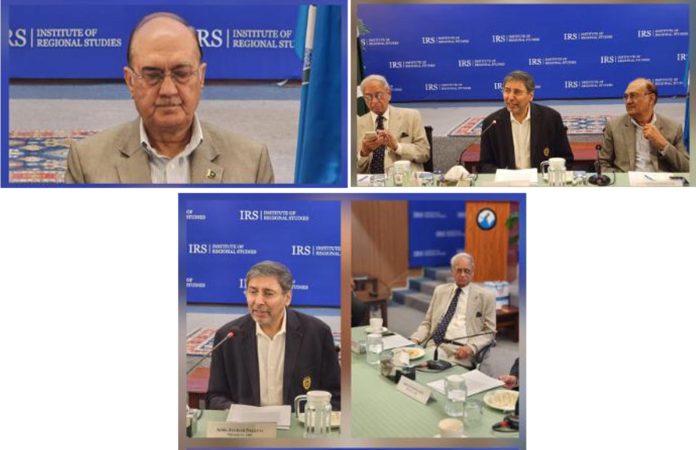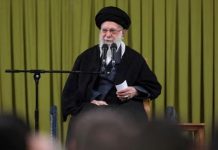ISLAMABAD, JUL 11 /DNA/ – Speaking at a seminar hosted by the Institute of Regional Studies, Ambassador Jauhar Saleem remarked that Israel’s strike aimed to weaken Iran’s regime and nuclear infrastructure. He said that despite systemic damage, Iran preserved its nuclear capability and demonstrated resilience against the technologically superior US–Israel nexus. He emphasized that, like Iraq episode, regime change is not feasible without ground presence. Amb Jauhar noted that while Israel systematically succeeded in weakening Iran’s proxy partners, its limited demographic size raised questions about its ability to withstand a prolonged Iranian retaliation.
Dr. Vida Yaghouti, Professor at Islamic Azad University, described the India-Israel partnership as a full spectrum strategic alliance shaped by extremist ideologies of Hindutva and Zionism. Cooperation spans drones, missile defence, and surveillance which is used to manage long-term rivalries with Pakistan rather than border threats, Dr Vida observed. She noted that India’s use of water infrastructure as a non-conventional strategic tool was a destabilising factor for the region. Viewing Iran as both a geopolitical rival and ideological adversary, India and Israel were aligned against Tehran’s Islamic identity and regional ambitions, she highlighted. On Iran–Pakistan ties, Dr. Yaghouti stressed their strategic nature that was focused on border stability and countering militancy.
Lt Gen (R) Khalid Naeem Lodhi emphasized Clausewitz’s war trinity i.e., people’s passion, leaders’ logic, and war’s unpredictability. He noted that Israel’s decapitating strike was possibly a trap under diplomatic guise. Iran’s missile strikes overwhelmed Israeli defences, showing tactical depth and deterrence, he analyzed. Furthermore, arguing about the impact of Israel strikes, Lt. Gen (R) Lodhi said that Iran’s regime survived and its nuclear assets werr likely relocated and hence sustained little damage. He predicted that Iran might now pursue nuclear weapons as the rationality dictates. Lt. Gen (R) Lodhi urged solidarity between Iran, Pakistan, and Turkey, to present a unified group of Muslim World.
Ambassador Ali Sarwar Naqvi outlined Israel’s goals which were to sabotage nuclear talks, damage infrastructure, and weaken the IRGC. While the nuclear program was disrupted, regime stability and IRGC endurance prevailed, mentioned Amb Naqvi. He cited that growing unity in Iran and backlash against Indian operatives in Chabahar has now become a new geopolitical reality which provides Pakistan with an opportunity to engage more with Iran. Addressing the Pak-Iran Relations, Amb Naqvi highlighted that both the countries have no outstanding issues. The only issue is the poor border management that can be resolved mutually.

















